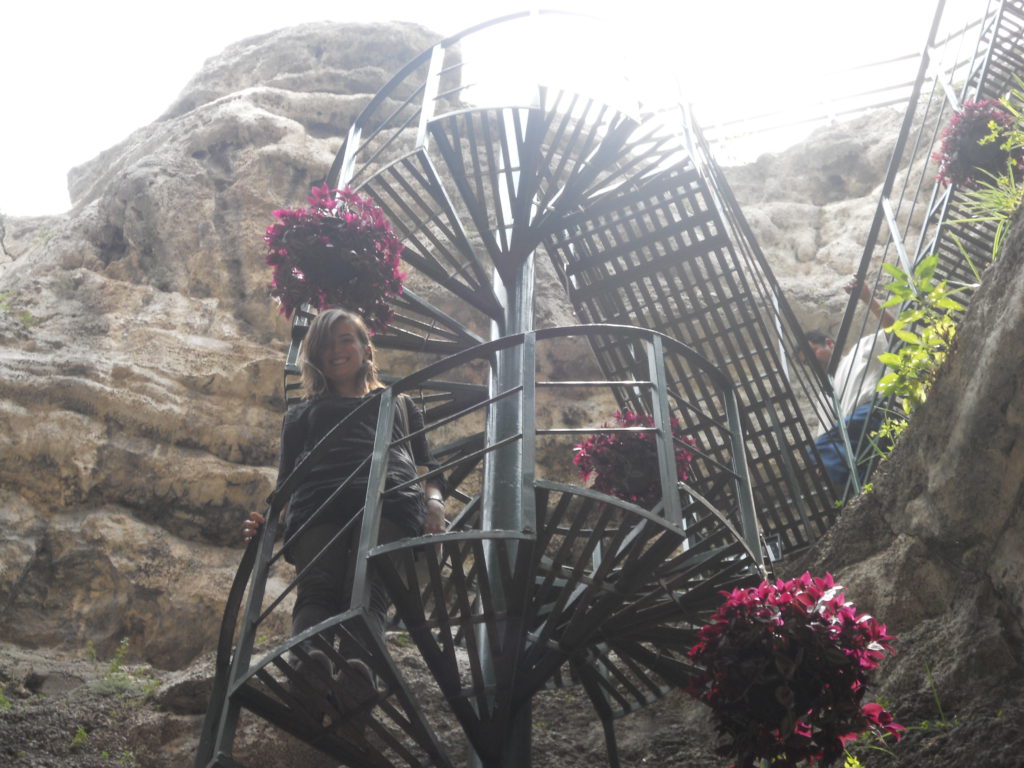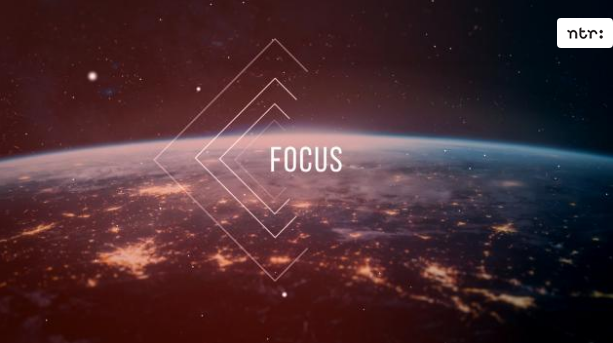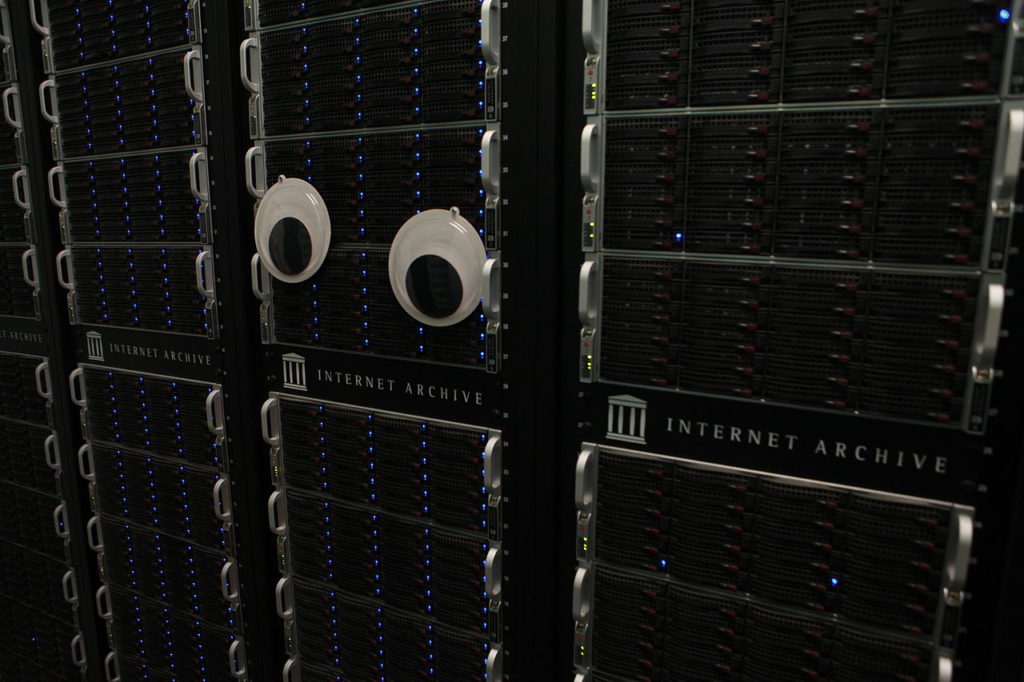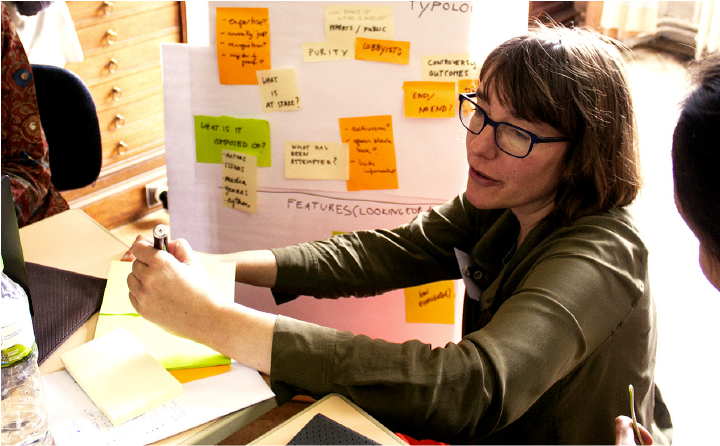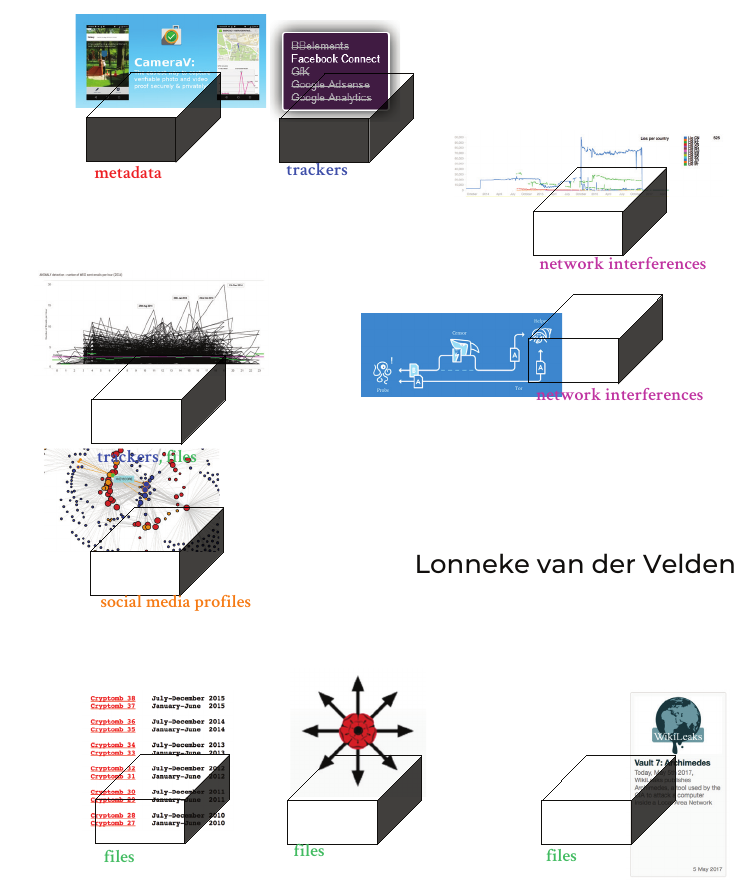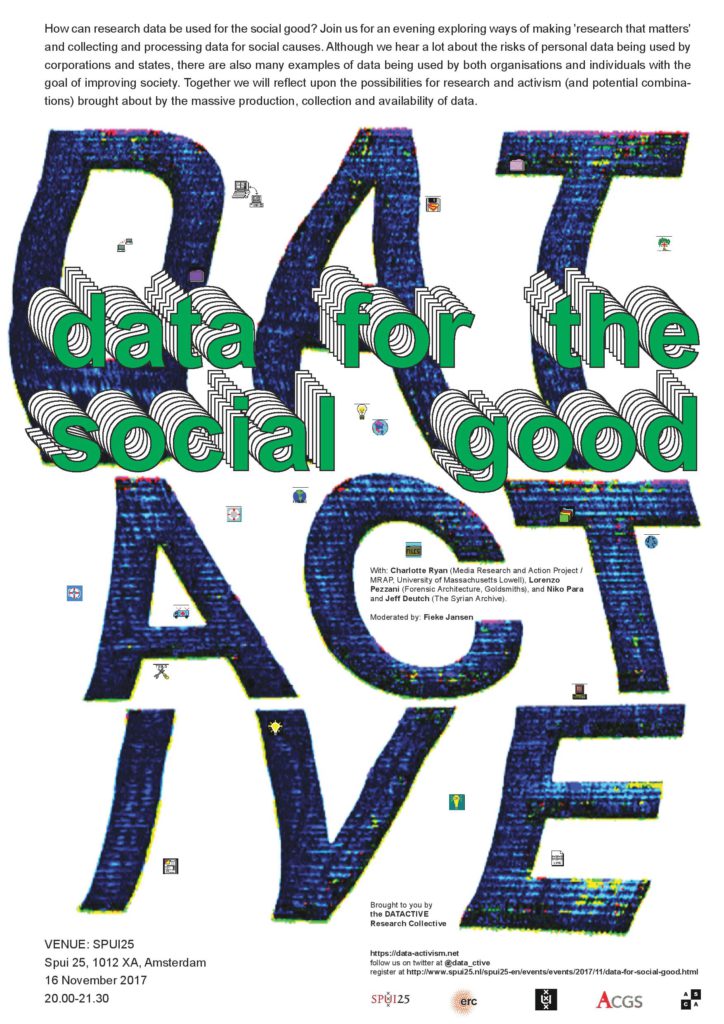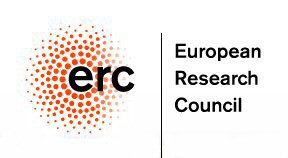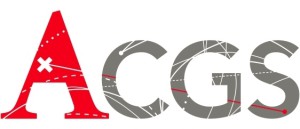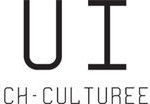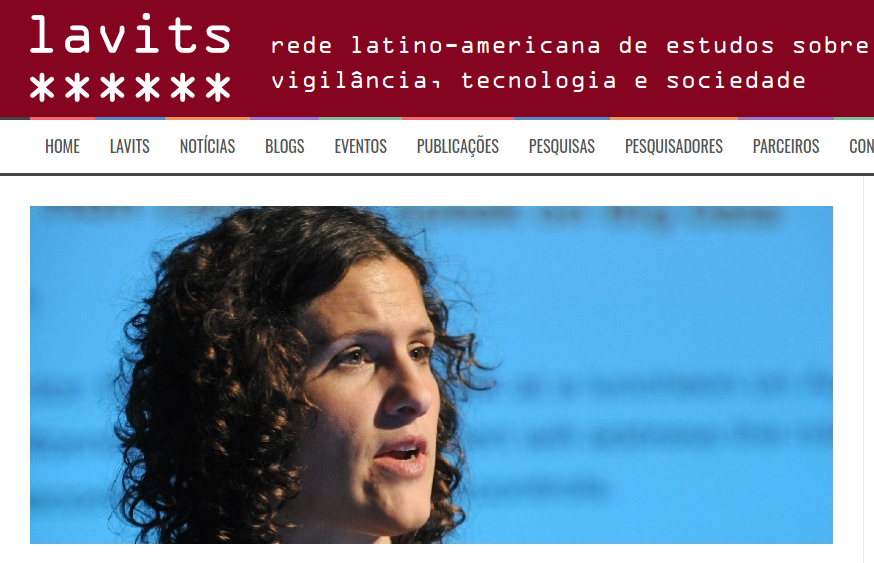by Virginia Brussa
English abstract. In Latin America, within the government, science, education, and software development sectors, various epistemic spaces are emerging that relate to data, and deal with issues such as openness, use, reuse, impact, and privacy. But how do the agendas of each movement look like? Can we think about a located agenda and practices common to our territory? If we go through the “content” of the most recent data-intensive meetings, conferences, laboratories, we will be able to visualize a vast thematic agenda. But what about the potential impact of sharing a common fabric of skills/competencies? This blog post argues that we have to combine the distinct practices to be able to think about the benefits of building bridges between movements and actors. But what about the humanitarian data agenda to test a shared common framework based in a “circular fabric” of competencies? It would be a great step forward to imagine a future situated-agenda free of the disciplinary silos within existing practices and actions.
América Latina parece ser disparadora de una agenda particular de datos desafiante, al calor de la maduración de encuentros pertenecientes al movimiento de datos y gobierno abierto. Evidencia de ellos es, por un lado, la comunidad de actores que mantienen con interés el debate, la crítica y los desafíos para cada anclaje territorial, y por otro lado, que el acceso, la ciencia o educación abiertas también están tímidamente resignificando sus espacios al calor de normativas, portales de datos, redes, o labs afines a los espacios de apertura originados en la Academia1. Sumado a este escenario, y siendo funcional a dicha agenda (a veces no oportunamente visibilizada), la innovación humanitaria y ciudadana también recala con distintas velocidades en la región.
Sólo como meros ejemplos de la diversidad de actividades que comulgaron con datos podemos mencionar el desarrollo del Primer MSF Scientific Day de AL, las iniciativas de Codeando México tras los eventos sísmicos del mes de septiembre, donde la tecnología cívica enfatizó la importancia del uso de datos abiertos (pero también reclamando oportunamente su ausencia en áreas vitales para una eficaz respuesta ante emergencias), o la relevancia de la identificación de fake news durante desastres. También se han llevado a cabo festivales de innovación ciudadana y abierta, reformulando paradigmas de organismos internacionales a partir de la integración de propuestas de laboratorios de innovación ciudadana, por ejemplo, los laboratorios por la Paz, los encuentros de hardware abierto y ciencia ciudadana, la Semana de la Evidencia, y encuentros de intervenciones urbanas. Todos denotan la mixtura de actores, competencias e intereses potencialmente confluyentes en el armado de una agenda de datos en el espacio regional2.
A pesar del elocuente escenario que se desprende de tantos esfuerzos, las distintas velocidades, fondos y políticas que delinean el rumbo en dicha “agenda de datos”, en ocasiones dan origen a “silos” o subagendas que se resisten al establecimiento de puentes entre los movimientos subyacentes. Esta (infra)conexión conlleva no sólo a gaps de colaboración, sino a demorar la posibilidad de profundizar lineamientos compartidos (facilitados por la definición de estándares y políticas regionales) y en potenciar la acción por-con los datos (a partir de competencias relevantes). Dicho esto, podemos convenir que nos encontramos bajo la presencia de una agenda data-situada bastante bien desarrollada a nivel temático, pero que en su componente de competencias, espacios y actores aún no logra aunar demasiadas energías.
Siguiendo a Milan & Van der Velden (2016) podríamos decir que los lazos entre movimientos regionales como los de innovación y apertura podrían ser uno de los elementos necesarios para fortalecer a la ciudadanía en competencias (digitales, informacionales, de datos), así como para establecer procesos de incidencia hacia el interior de gobiernos, instituciones educativas u organizaciones de la sociedad civil. Pero ¿está siendo la práctica de ésta incidencia y conformación de agenda “situada”? Es decir, ¿estamos considerando realmente nuestros propios procesos, soberanía tecnológica y narrativas respecto a los Datos? Respecto a ello, podríamos preguntarnos brevemente si para asistir a esta suerte de agenda data-situada nos hemos planteado caducar ciertos ismos. Posteriormente podremos adentrarnos en el debate, pero en principio podemos argumentar que al ser revisado el data-centrismo3 y la dataficación o el tecnocentrismo se reformula también la agenda. Sin embargo, al pensar en su profundización, la ausencia de entramados conjuntos de actuación y trasvasamiento de competencias desaceleran su impulso crítico.
Trama circular de competencias
Las competencias o habilidades para trabajar con datos son uno de los elementos que propiciarían una trama circular que facilite la conversación entre movimientos, para ahondar en la localización de agenda y afianzar finalmente las prácticas para un activismo proactivo y reactivo de datos. Una condición a tener en cuenta para guiar e iluminar el camino podría ser el enlace entre aquel que ha la estandarización de datos –impulsada en la región por ILDA –, y la identificación de competencias, ya que “[l]os procesos de estandarización fuerzan a todas las organizaciones a pensar qué tipo de datos precisan, cómo lo recolectan, de qué manera se almacena y eventualmente en los procesos de uso de los mismos” (ILDA, 2016) . Por tanto, de la estandarización se pueden ir desprendiendo de forma paralela aquellas competencias –y en especial las referidas a las “data literacies”- relacionadas a promover formas de acceso, ciudadanía crítica y equidad.
Tal como evalúan desde ILDA, la estandarización de datos está emparentada con la acción y por tanto, para ir más allá del mero discurso, es necesario democratizar las capacidades en el marco dado por los estándares. Prácticas de co-creación de recursos educativos abiertos, intercambio de habilidades y conocimiento en la sensibilización y “formación”, habilitarían esa característica circular provista por modalidades de colaboración (entre movimientos), en ocasión de habilitar la trama propuesta.
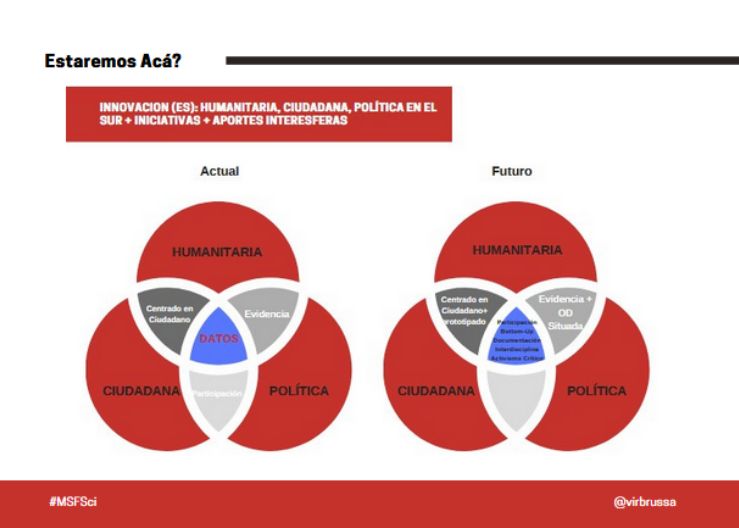
Fuente: Brussa, V (2017) Primer MSF Scientific Day América Latina. UNR
Particular atención podrá requerir en esta agenda data situada, como un emergente, el tópico humanitario. Si bien es un ítem que merece ser analizado con mayor detenimiento, es uno de los temas que por su naturaleza aún no logra tomar una forma regional, como se propone en este breve artículo. Sin embargo, no se le puede negar su potencial de acción para introducir en los lineamientos de lo abierto y colaborativo, herramientas de lo humanitario tal como se presenta en la imagen. Por tanto, los movimientos de innovación política, humanitaria, ciudadana, abierta, académica (parte de la agenda de datos) ofrecen instrumentos que teórica y empíricamente forjan la regionalización-localización comentada, en tanto y en cuanto se reconozcan lazos comunes existentes.
Algunos ejemplos que visualizan directa e indirectamente una futura trama “circular” de competencias , aprendizajes, experiencias en Latinoamérica son el trabajo de Médicos Sin Fronteras en relación a los marcos éticos de uso de datos sensibles, el monitoreo de los Objectivos de Desarrollo Sostenible en el marco de gobierno abierto; los indicadores ambientales sumados al Barómetro de Datos Abiertos; los repositorios de acceso abierto o notas de laboratorios en salud; los Open Trials; las iniciativas de apertura de Contrataciones Públicas o las relativas a presupuestos abiertos y/o Follow the Money; Data Sprints sobre Fake News; estándares de IATI o HDX sobre datos; el proyecto Missing Map; la creación de recursos educativos abiertos para poblaciones migrantes o refugiadas; la gestión de redes sociales y la estandarización de uso de hashtags en situación de emergencias. La convergencia de estos procesos podría fortalecer a la ciudadanía en capacidades afines al uso y reuso de datos. Y así por qué no, ser muchos más codeando durante una emergencia, mapeando en OSM, reutilizando procesos colaborativos de otras esferas, usando metodologías y prototipado de los “labs”, transparentando y co-produciendo insumos varios para el hacking cívico y/o nuevas modalidades de participación ciudadana en clave latinoamericana.
* Los ejemplos citados representan un núcleo pequeño de todo aquello existente para enumerar. En consonancia con eso, estoy realizando una plataforma que intenta sistematizar iniciativas relacionadas a temáticas aquí señaladas, con el fin de aglutinar experiencias y posibilitar otras modalidades de análisis a través de variables seleccionadas.
Virginia Brussa es coordinadora de la Red Argentina de Educación Abierta (AREA) y +Datalab. Co-organizó junto a MSFArgentina el Primer MSF Scientific Day en AL. Es SBTF alumni, participa en CIM, AAHD, Santalab entre otros.
About the author. Internationalist. Interested in collaboratives practices , digital research methologies and spaces of innovation. Co-organized the First Latin American MSF Scientific Day with MSF Argentina. Coordinator of the Open Education Network of Argentina. Working close to citizen laboratories , open data and gender issues. Member of CIM and AAHD.
1. Recordemos las Conferencias OpenCon Latam en MX, OpenCon Santiago, las actividades en el campo de las Humanidades Digitales en MX, Arg, Co, Uy, las guías de la CEPAL sobre Gestión de Datos de Investigación etc.
2. Interesante sería crear una agenda integral y colaborativa de encuentros 2018!
3. Podemos citar las referencias sobre el fin de la teoría, la revolución de los datos como aporte naïf en la toma de decisiones o las corrientes fundamentalistas en apoyo al bigdata para la predicción de todo tipo de situaciones.
